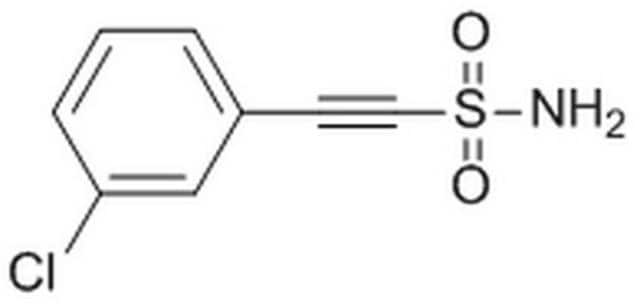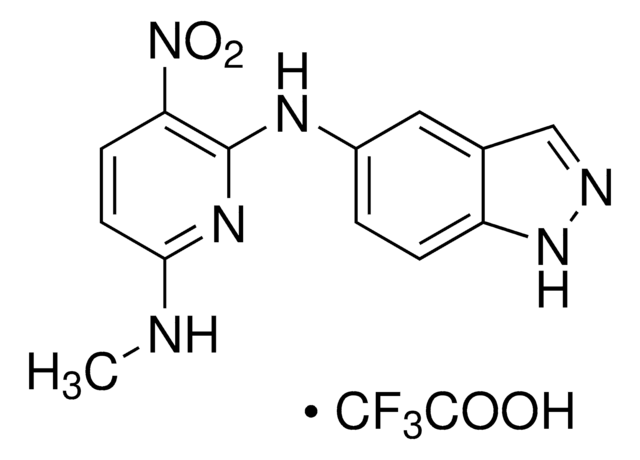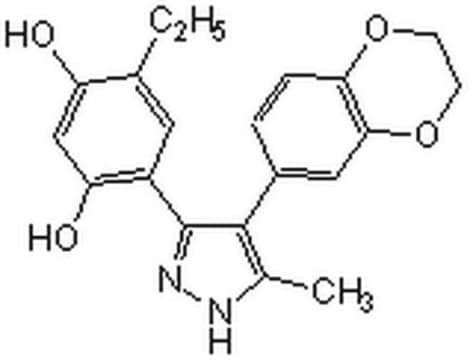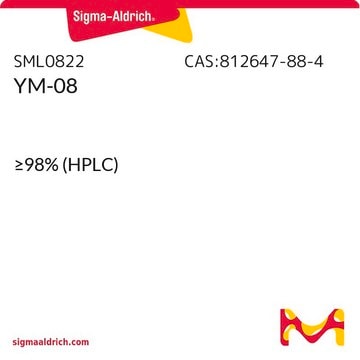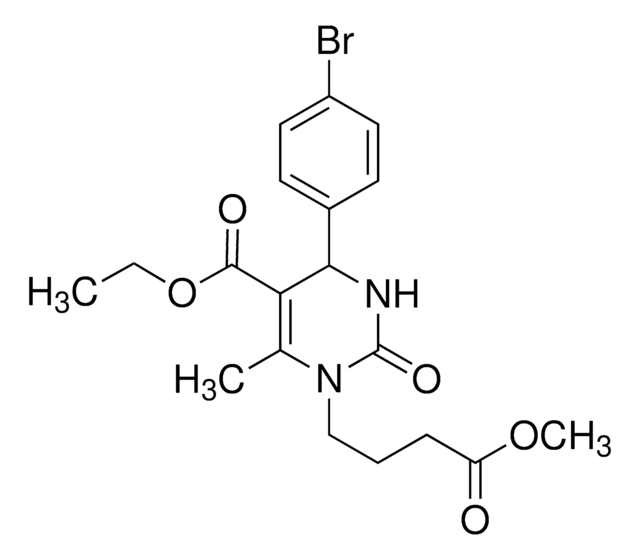SML0271
VER-155008
≥98% (HPLC)
Synonyme(s) :
5′-O-[(4-Cyanophenyl)methyl]-8-[[(3,4-dichlorophenyl)methyl]amino]-adenosine
About This Item
Produits recommandés
Niveau de qualité
Pureté
≥98% (HPLC)
Forme
powder
Conditions de stockage
desiccated
Couleur
white to light brown
Solubilité
DMSO: >10 mg/mL
Température de stockage
2-8°C
Chaîne SMILES
Nc1ncnc2n([C@@H]3O[C@H](COCc4ccc(cc4)C#N)[C@@H](O)[C@H]3O)c(NCc5ccc(Cl)c(Cl)c5)nc12
InChI
1S/C25H23Cl2N7O4/c26-16-6-5-15(7-17(16)27)9-30-25-33-19-22(29)31-12-32-23(19)34(25)24-21(36)20(35)18(38-24)11-37-10-14-3-1-13(8-28)2-4-14/h1-7,12,18,20-21,24,35-36H,9-11H2,(H,30,33)(H2,29,31,32)/t18-,20-,21-,24-/m1/s1
Clé InChI
ZXGGCBQORXDVTE-UMCMBGNQSA-N
Application
- to study its effects on human embryonic kidney 293 (HEK293T) cells
- to study its effects on viral mRNA synthesis and protein expression in Vero E6 cells
- to determine its effects on the attenuation of seizures in rats
Actions biochimiques/physiologiques
Code de la classe de stockage
11 - Combustible Solids
Classe de danger pour l'eau (WGK)
WGK 3
Point d'éclair (°F)
Not applicable
Point d'éclair (°C)
Not applicable
Certificats d'analyse (COA)
Recherchez un Certificats d'analyse (COA) en saisissant le numéro de lot du produit. Les numéros de lot figurent sur l'étiquette du produit après les mots "Lot" ou "Batch".
Déjà en possession de ce produit ?
Retrouvez la documentation relative aux produits que vous avez récemment achetés dans la Bibliothèque de documents.
Les clients ont également consulté
Notre équipe de scientifiques dispose d'une expérience dans tous les secteurs de la recherche, notamment en sciences de la vie, science des matériaux, synthèse chimique, chromatographie, analyse et dans de nombreux autres domaines..
Contacter notre Service technique